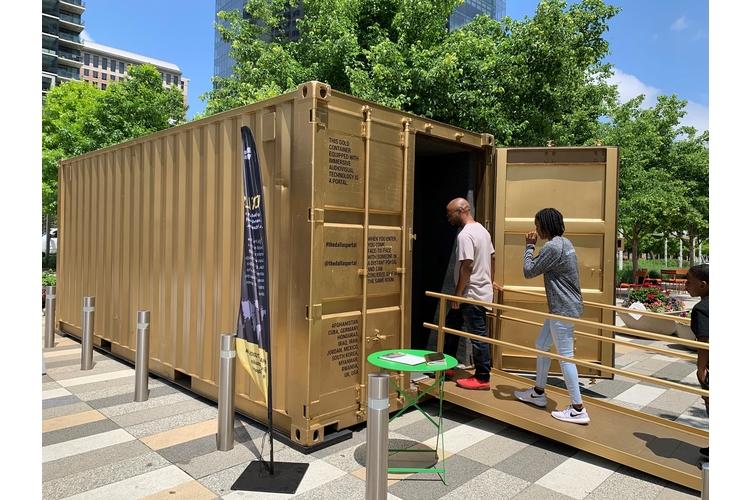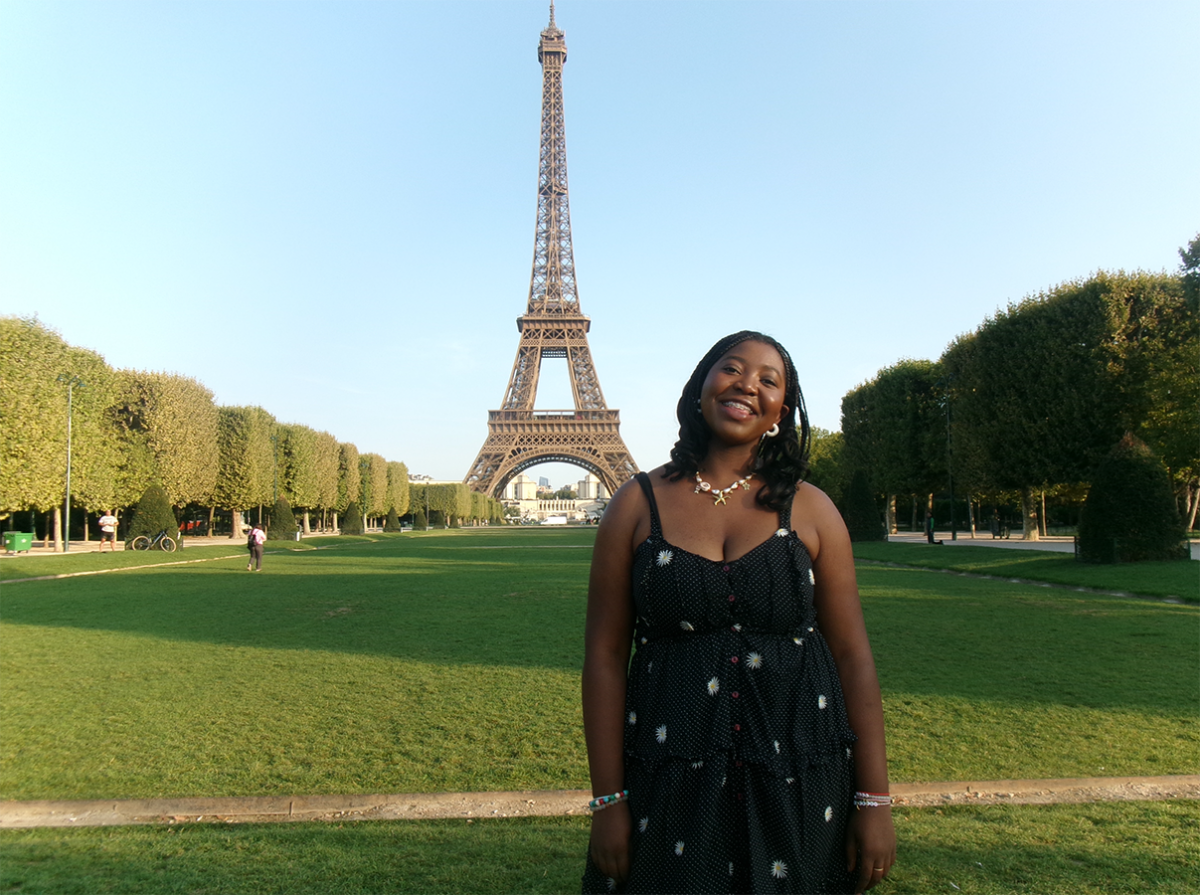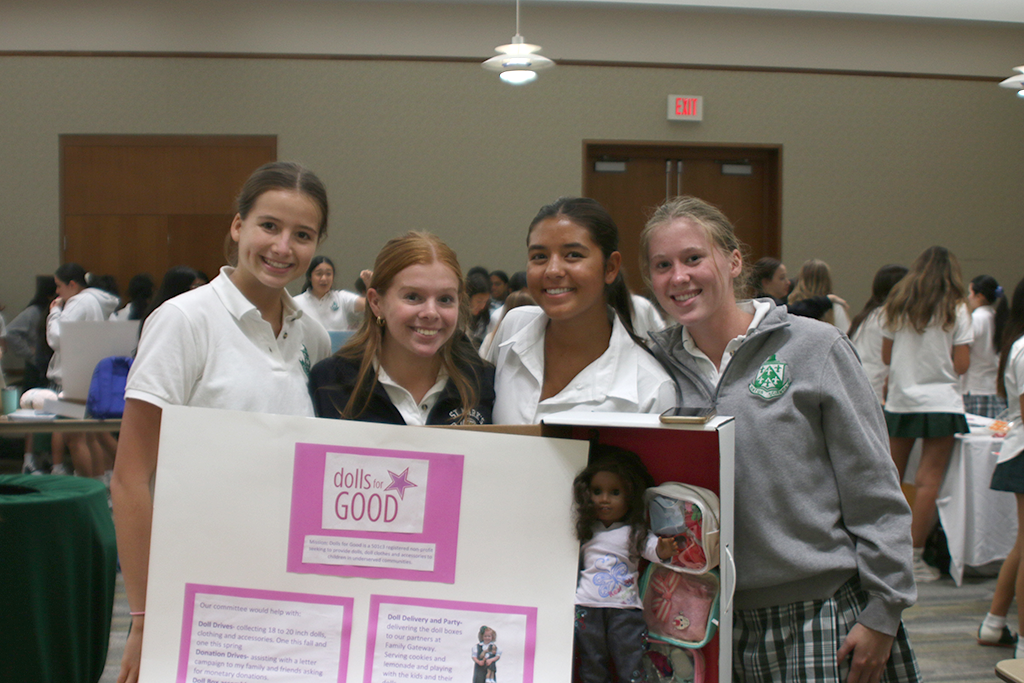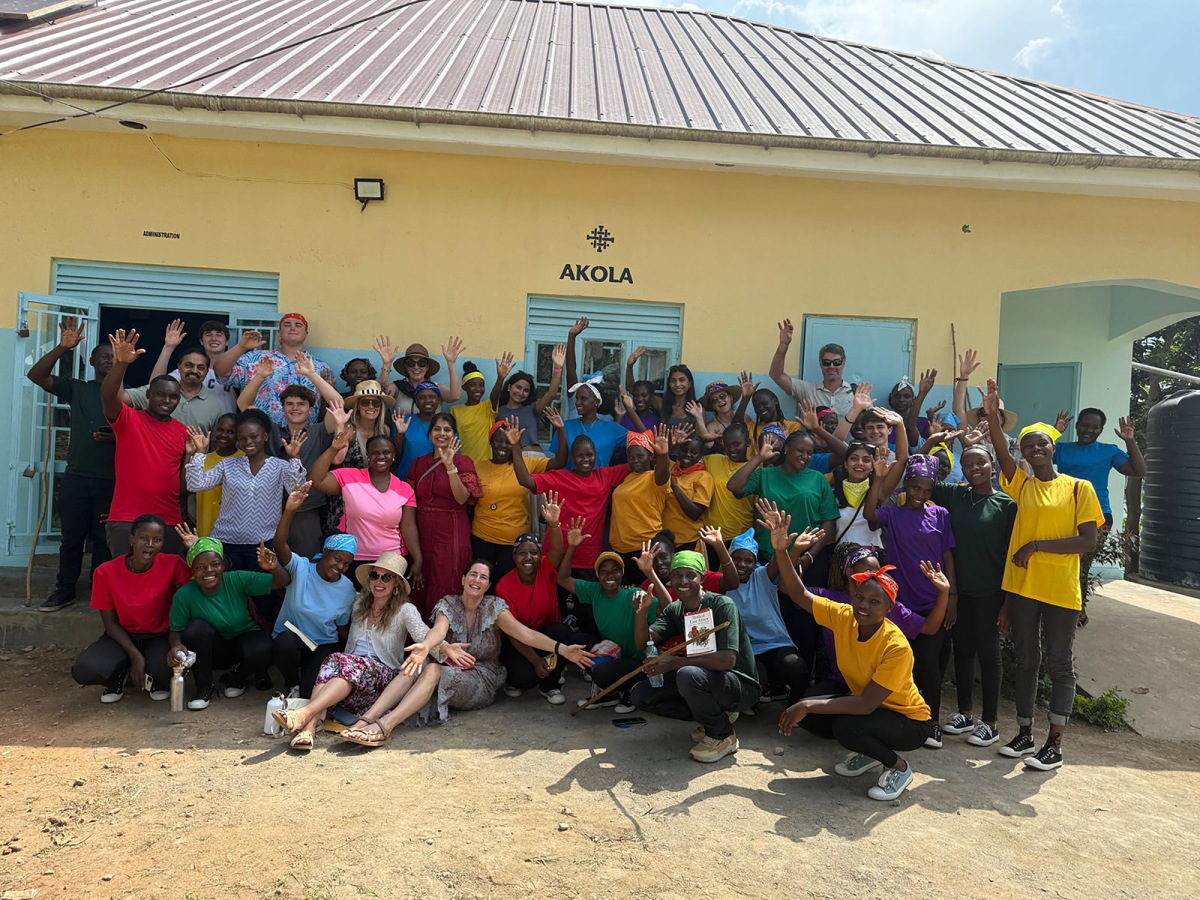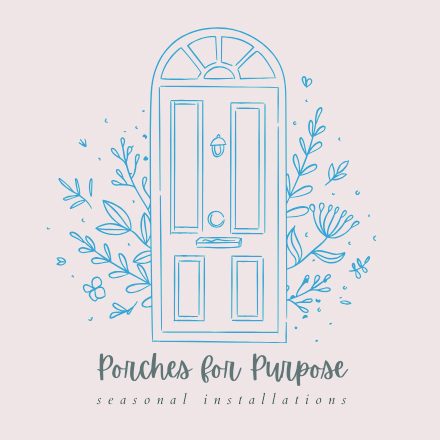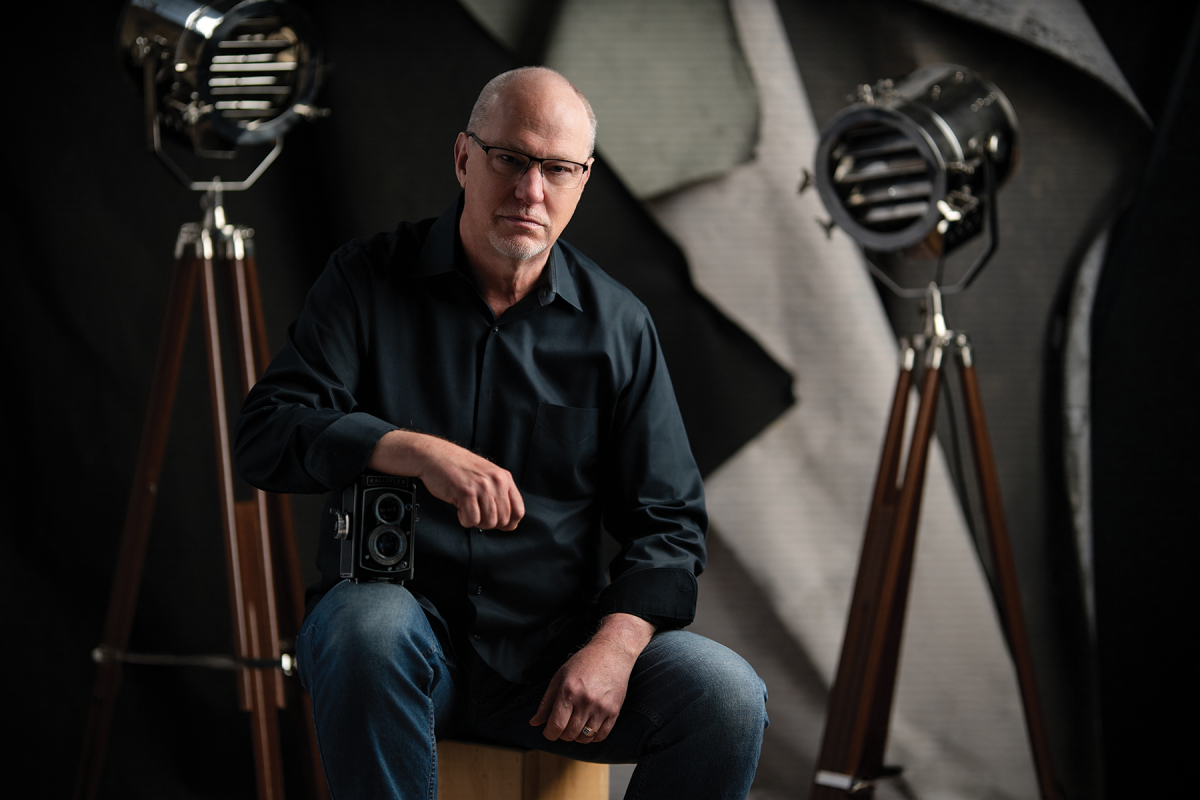//PICTURED ABOVE: Dallasites enter the golden portal located in the heart of Downtown Dallas at Klyde Warren Park.
“Portals began as a daydream. We’ve all read stories about people walking through a mirror, or a wardrobe, or a rabbit hole…and emerging in another world; another time; another space.”
This was the concept behind Portals, a project by Shared_Studios that connects people around the world through in an immersive space.
The golden box at the edge of Klyde Warren Park was a shipping container from Fort Worth, repurposed to be one of the portals around the world. It allows people in Dallas to video chat with the rest of the world through audiovisual technology.
As I walked into the glimmering golden box, I came face-to-face with a man in Berlin, Germany, mid-conversation with a mother and a young girl as they talked about German red wine, the medieval castles of Frankfurt and Germany’s famous Christmas markets.
The man introduced himself as the curator from Berlin, but unfortunately, I wasn’t able to catch his name due to the audio. He lived there since he was five and is currently working on his thesis for his master’s degree, operating part-time as the portal curator.
The curator described the connections of the portal as being like social media, but more powerful because it allows people to talk face-to-face.
Each portal has at least one curator to facilitate and monitor the connections. I also met one of the curators of the Dallas Portal, Matthieu Cartal, who has been living in Dallas for almost five years.
“I just keep the tech running, usher people in and answer questions,” Cartal said, “when the lead curator had to check on the shipping container that was in storage in Fort Worth, she came to town to interview people, and I got interviewed and got in.”
Amar Bakshi, founder of Shared_Studios, began the Portals in 2014 when he opened the first portal in his parents’ backyard in New York. After dealing with angry neighbors and local police, Bakshi was able to connect with a curator in Tehran who installed a Portal space there.
“Art opens space for us to probe essential character – that of others, and our own,” Bakshi wrote.
Because of the increasing popularity of the portal, the project expanded to Afghanistan, Honduras, Iraq, Palestine, Germany and more.
“Now we have forty portals, forty such containers in different places around the world, “ the curator from Berlin said.
Overall, I loved the concept of the Dallas Portal. While I enjoyed interacting with another person in another country, the audio was sometimes choppy, and the interior of the box was somewhat off-putting. Because I didn’t expect the glitzy box to be almost completely dark on the inside, the atmosphere — reminiscent of a theater — was jarring.
But once I grew accustomed to the dark room and rough audio, I enjoyed listening to the conversations around me, from both Dallas citizens and the German curator. Ultimately, the box provided a unique, immersive experience that definitely has the potential to foster conversation and a sense of community.
Story and photo by Kelsey Chen


